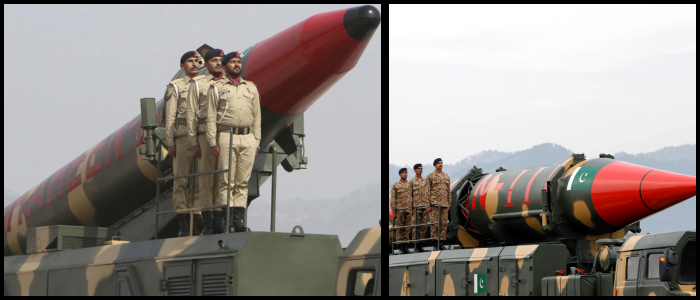Currently, the US sees only Russia, China and North Korea as nuclear foes. Such a designation for Pakistan would be a drastic downgrade of relations. No country that has ICBMs that can reach the United States is a friendly power, the US assured.
Nuclearisation of Pakistan and its regional orientation
Pakistan has claimed that its nuclear arsenal is designed mostly to deter India and has concentrated on short- and medium-range missiles. At present, they do not have ICBMs. The Shaheen-III, a surface-to-surface medium-range ballistic missile, tested in 2022, has a range of more than 2,700 kilometres, enough to reach most large Indian cities.
ICBMs, which can carry both nuclear and conventional warheads, have a range of more than 5,500 kilometres. Analysts say Pakistan may be attracted to these long-range weapons because it wants to deter the US from attacking its nuclear facilities or interfering in any future Pakistan-India conflicts.
Sanctions and Strategic Frustrations
The United States has already raised alarms about Pakistan's missile aspirations. New sanctions related to the country's long-range ballistic missile program were imposed by Washington in the past year. These sanctions barred the National Development Complex and three other defence-related firms from accessing any of their assets in the United States and prohibited American companies from doing business with them. Pakistan decried the sanctions as unfair, but the US government defended them by saying that Islamabad was attempting to buy components for cutting-edge missile systems.
Pakistan now possesses around 170 nuclear warheads and has not signed the NPT (Treaty on the Non-Proliferation of Nuclear Weapons), the aim of which is to prevent the spread of nuclear weapons and to foster cooperation among the member parties in the peaceful use of nuclear technology.
India's Operation Sindoor And The Regional Fallout
Tensions have since flared especially after India's latest raid named Operation Sindoor, which aimed at nine terror camps and 11 top airbases deep within Pakistan. In retaliation, the Pakistanis apparently fired a hypersonic ballistic missile called the Fatah-II at India, which was shot down by India's air defence systems.
The episode prompted several Indian leaders, including the defence minister, Rajnath Singh, to demand international oversight of Pakistan's nuclear arsenal. Such capabilities cannot be trusted in the hands of Pakistan, Singh warned and called upon the International Atomic Energy Agency (IAEA) to intervene.
World

Pakistan Developing ICBM That Can Reach US

Pakistan is believed to be working on a covert project to develop a nuclear-tipped intercontinental ballistic missile (ICBM) that could deliver its atomic warhead to the United States. In Washington, intelligence officials said that the development could prompt a grave diplomatic reaction, including the almost certain designation of Pakistan as a nuclear adversary by the United States if it succeeds in its quest for this new technology.















